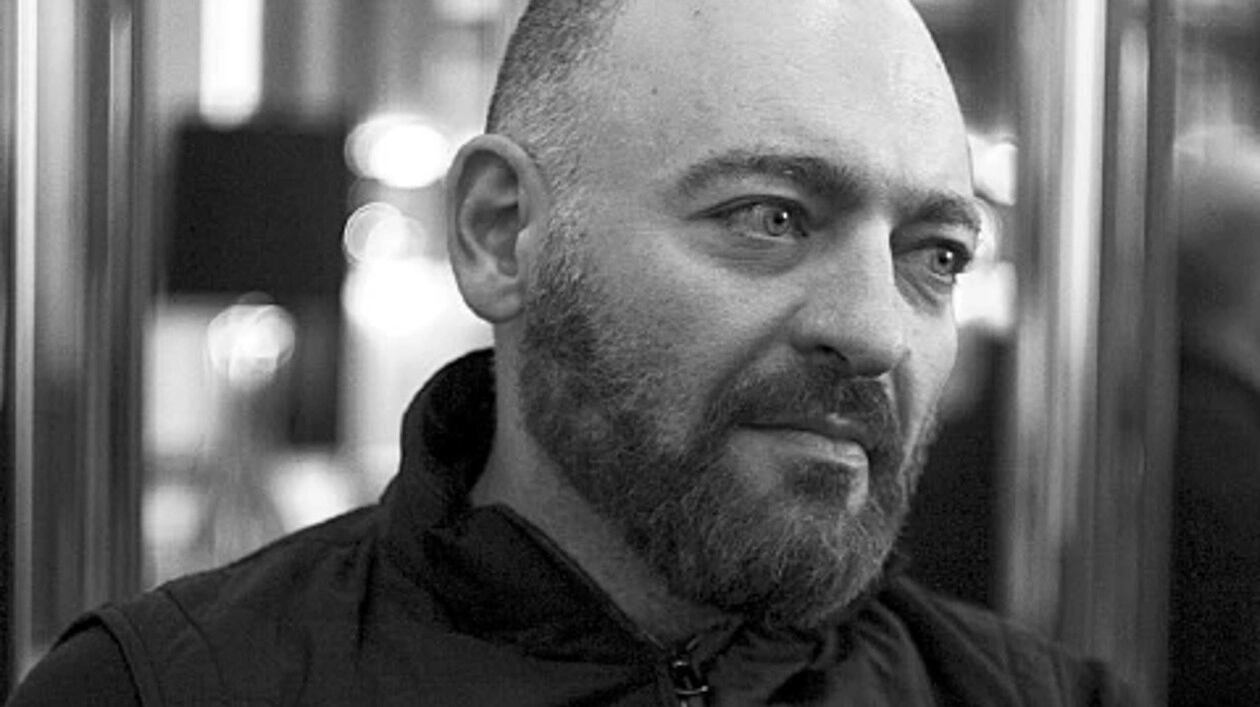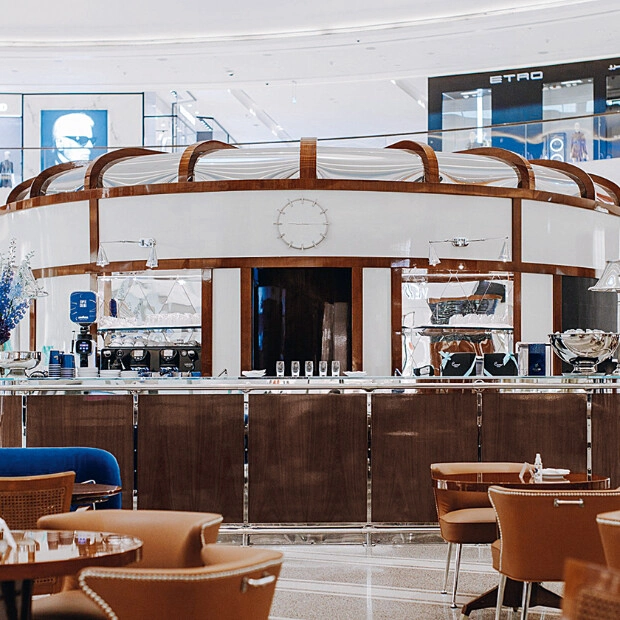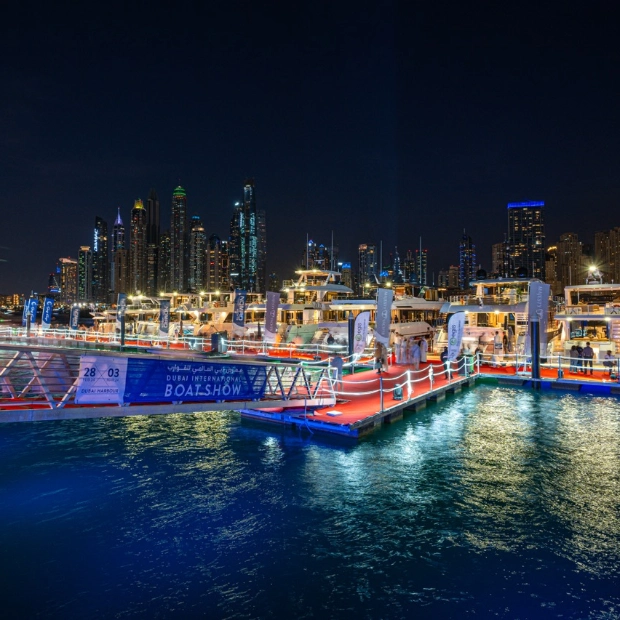Even the taste for expensive wine, impeccable manners, and virtuosic etiquette isn’t enough to make people resistant to certain desires and temptations, some ancient as the world itself. And if, in matters of food and drink,today’s enlightened humanity is ever increasingly inclined to some rather complicated form of asceticism, then it can safely be predicted that limitations will not be imposed on matters either of entertainment or travel in the foreseeable future. The ideal life to invest personal resources in is that of the discoverer, who manages to retain a clarity of perception as well as a thirst for new experiences. On whether technical progress can offer a person novel opportunities and temptations, Kirill Rubinsky presents his column.
Over the last 5 000 years, I don’t think there have been great changes in the nature of human desires and temptations. And human desires and temptations can’t change much, because they’re embedded in the very nature of man. Sure, different epochs have been focused on different aspects of life, but that’s another matter. What’s remained consistent is the striving towards a longer, more pleasant, more interesting life. We want to live better, more happily and longer. And that’s just fine.
Longevity is perhaps the hardest of these goals to reach, as the path to immortality requires advancements in biochemistry. True as that may be, we seem to remain constantly under the impression that we’re just a few more scientific discoveries away from finding the answers: we’ll live much longer than our parents did, that’s for sure. Alas, life expectancy has increased impressively over the past 100 years, but only on average, globally, as shown in hospital records. Among secure people in developed countries, progress has been rather modest. And 30, and 20 years back, you’d see in popular science magazines that we were about to cure cancer, well, maybe not tomorrow, but in the next 10 years, for sure. But that hasn’t happened. Even today, we have yet to find a cure for cancer, even as worldwide multibillion-dollar investments continue on in the fight against it. The number of cancer patients, moreover, continues to grow, the world over. Could it be that, after all this, we’ve managed to survive only to the point when cancer inevitably strikes?
Temptation, by and large, is always a matter of choice.
As the temptation to live eternally remains perhaps an eternally unattainable dream, the ability to live better, to move faster, farther, easier, to access and exchange information unrestrainedly increases with each passing year, less and less contingent upon your country of residence.
Temptation, by and large, is always a matter of choice. It’s something you can do, but that you refrain from, for one reason or another. I don’t think "temptation" is inherently negative. In France, the concept is featured in a popular phrase: péché gourmand, or gourmet sins, words commonly used to advertise guilty pleasures like eclairs, for example. Everyone’s aware of how awfully high in calories they are, that overdoing it on them won’t be without consequences, but they’re insanely good. They fill your blood stream with endorphins. And, truth be told, oftentimes the most tempting things are also undoubtedly harmful, in some sense.
To travel, either with purpose or without, is a serious temptation. To get away for a year, maybe, and write something. Or just to have a change of pace, to experience unfamiliar sensations, finally to take the family somewhere... Well, that’s a specific temptation. There are those super expensive retreats, where you’re given nine months to spend on various meditation practices, ayurveda, with shamans and coaches. You’re meant to return home feeling enlightened, rejuvenated, in perfect shape. You’ll travel through India, China, Peru, South Africa, Spain, other places. During the trip, you’re under the guidance of the best instructors and coaches. Those kinds of trips are certainly tempting, but they require you to abandon everything else, which few people can do.
Then, there’s always the temptation to buy a "small candle factory," that is, to get involved in something that doesn’t bring in much money, but whose process or subject matter calls to you — a neat Parisian restaurant for a tight group of friends or a Tuscan winery full of history and atmosphere. But don’t confuse tourism with permanent residence. Eating good food and finding the best places to have a drink is one thing — it doesn’t constitute hard work. Setting up a successful culinary business, on the other hand, is a very serious challenge.
I’ve been to some 40–60 Michelin-starred restaurants over the course of a year, and my sense of taste has already matured. Then you start thinking about how there are some dishes you could make yourself, could even improve upon somehow...with this in mind, you toy with the idea of taking on the challenge. This is certainly a temptation. What stops you? Inside, you realise that your chance of burning out overpowers your chance of success, and you would’ve invested all of yourself in the project. In that case, you’d lose money, be disappointed in your abilities, and let down anyone else involved, which is all the more painful. So this temptation remains no more than a fantasy.
The concepts of temptation, sin, and social prohibition are all closely intertwined.
I’m a member of a food-related discussion group. It’s a closed group, and it was a lot of work to get into. There are about 300 members: bosses, critics, bloggers, people who just know their way round the kitchen. We talk about different trends, give our impressions about this or that restaurant, offer recommendations or criticisms, just share our thoughts. Oftentimes, naturally, the things we come up with would seem delirious or schizophrenic to the uninitiated ear. Discussions about Conte cheese, for instance, produced by so and so, aged in this way or that, resulting in its uniquely peculiar taste... Or elaborations on this wine, which, though it may have been from a good year, isn’t worth trying — the winemaker was in the middle of a divorce, it was a really stressful period, and the wine suffered in turn. Or conversations about the 21 different varieties of Hokkaido sea urchin caviar, only a specific grade of which is the right one, thanks to its combination of salty and sweet, its iodine composition, its colour, how it was stored and transported.
The concepts of temptation, sin, and social prohibition are all closely intertwined. The history of mankind, as I see it, is nonlinear. There hasn’t been some upward path to morality, or higher value, or humanism — no, that’s not how it is. There have been ups and downs, like a cardiogram. Now, we’re more developed than in the time of Jesus Christ, but so was the Roman Empire more developed than were the people of the Middle Ages.
No matter how technology develops, our reflexive and instinctive desires still linger. Take adultery, for example. The monogamous family system isn’t an instinctive thing, but a social norm, and not necessarily accepted as such in all the countries of the world. Now there’s talk of the family crisis and the expansion of what is considered normative sexuality. Until 1979, the WHO considered homosexuality a disease; now, it’s becoming one of our norms. As certain taboos fall away, we’re given the possibility of development.
On the other hand, the temptation to attain some kind of mystical thinking — to know the future, or your destiny, or to read somehow the thoughts and intentions of another person — have tended to, and continue to coexist with elite education and intellectualism. I have a friend from London, who came from a professorial Moscow family, who went to Fiztech and got an MBA from Harvard Business School, who worked for many years as a partner in an international consulting firm, and before that, as an investment banker in a large US bank. One day, she asked me to give a picture of her husband, whom she suspected of adultery, to a fortune-teller somewhere near Bryansk, hoping to find out the truth.
On an individual level, a person does have the power to change, but, as a species, we’re fairly resistant to change. It turns out that the old adage is true: everything that is, there always has been and always will be. We are much more similar to our ancestors than we’d like to think.
If people knew when it would all be over, temptations would acquire other qualitative characteristics, they would no longer be worth resisting.
If there were, however, a more convincing way to look into the future than using a fortune-teller from Bryansk, there are plenty of people who’d want to find out their date of death. If you were to think logically and believe it was truly accurate, irrefutable information, then you’d start planning your life differently. The most valuable thing we have is time; it’s extremely important to make optimal use of it. I recall Woland and Berlioz disputing in Master and Margarita that no one knows what will happen the next minute. Why go along with the same old routine if you’ll be gone in three years? Why carry on working at the usual pace, if your time left could be spent much more greatly benefitting you, or your loved ones, or society as a whole? If people knew when it would all be over, temptations would acquire other qualitative characteristics, they would no longer be worth resisting. They’d be prioritised, finally. I, for one, don’t wish to find out when exactly I will die. That is definitely not a temptation of mine.






